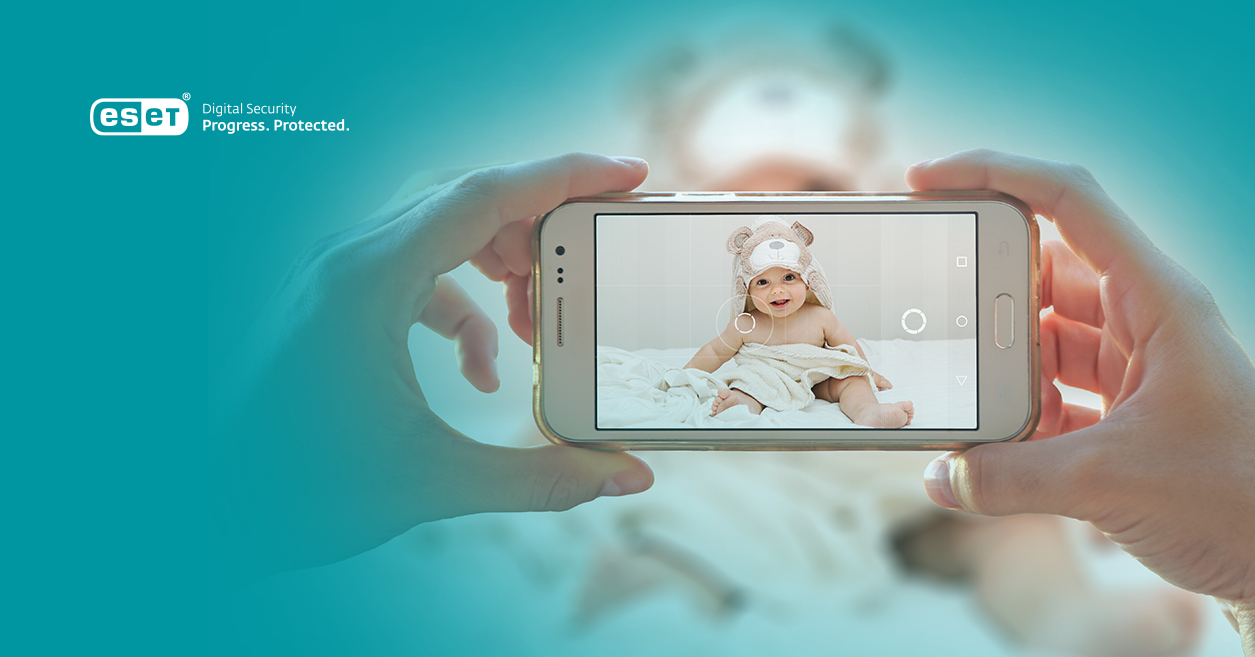Children born today will have the largest digital footprint in history. According to a report by the Children's Commissioner for England published in 2018, the average person in the UK will have 70.000 posts about them online by the time they turn 18.
This is a huge amount of data about a single person that is shared, exchanged and stored. This data is then accessible to many more people than we may realize.

"It's natural to want to share the happiest moments of our lives. Posting pictures of your children online may seem harmless, but there are several reasons why you should take a cautious approach," says Alžbeta Kovaľová, from the team at global digital security company ESET.
The internet and social media are great libraries for storing all those precious personal moments. However, this may not be the best approach for our children.
Let's look at some of the threats this poses to your child's safety, and not just online.
1. The image you uploaded is no longer yours
Every time you post a photo on a social media platform, that image is no longer exclusively yours. The terms and conditions often state that once an image is uploaded to their server, they are free to use it without consent. While you retain the copyright, the platform whose servers host the image owns the license. In other words, the social networking platform has the right to use your photo in any way it sees fit.
2. OR ID card the baby's? My own identity
Sharing information or photos of your children online can lead to identity theft. Posting ultrasound images, with sensitive information, exposes the child to risks even before birth. Sometimes, a post may include the child's name, date of birth, or location. Then, with just a few clicks, an attacker can discover the parents' personal information. Combine all of this with data breaches and social security numbers readily available on the dark web, and you have a quick and easy recipe for identity theft – with hackers potentially obtaining credit in the child's name. According to leading bank Barclays, the risks of posting pictures of your children online will account for two-thirds of identity fraud and financial fraud faced by young people by 2030.
3. Metadata reveals all
Social networking platforms are not responsible for removing metadata from your images. These include, for example, the location, the type of device used to take the photo, and so on. An average cybercriminal can very easily use these to track down your child, where they go to school, where you live, what extracurricular activities they attend. Even a photo of your child's artwork can include their name.
4. You're attracting the wrong audience
A good rule of thumb is, if you have the slightest doubt about a photo, it's best not to post it. Also, try to avoid posting nude photos of babies online. Even an innocent photo of potty training or a child running naked in the garden can attract the wrong audience and a photo of your child can end up in the wrong hands.
5. Consent is your mission
Realizing that your children will inherit the consequences of your online behavior is a serious thing. Therefore, asking your children for their consent to post anything about them on social media helps them realize that there are choices to make and consequences - both positive and negative. If you want to post a photo of your child with another child, you should also ask for their permission or the permission of their parents or legal guardians, just as you would with an adult. In France, if you post a photo of your child online and they object later, you could face a €45.000 fine or jail time. Similar laws apply in Italy.
6. Reward bad habits
When you post every moment of your child's life it can reinforce bad habits and create a false reality that sharing everything online is okay and safe. Make sure you teach your children to use social media and online spaces safely and responsibly. Talk to them about the dangers, but also show them the fun part. Unlike you, they were never given a choice and cannot escape the online world. Instead, they will have to learn to navigate it.
"Considering that social media platforms have a policy of only allowing people over 13 to use their services, you should also think twice before posting pictures of your child online," says ESET's Kovaľová. "Many of us have decided to use social media, but your child may not have made the same choice."
Your children's safety is a top priority and you should not neglect their digital safety. If your child uses social media, make sure it stays up safe and protected online using a reliable Parental Control solution.
Make sure your child understands what you are doing and why you are doing it. This is how we raise responsible users of it Internet. We can't expect our children to know how to do it if we don't show them the way. For this, talk to them and explain our complex digital world.
"You are, and should be, their first contact with a safer internet" reminds us Alžbeta Kovaľová, from the team of the digital protection company ESET.





